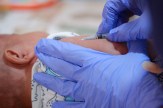US public is ‘firmly opposed’ to reopening the economy immediately
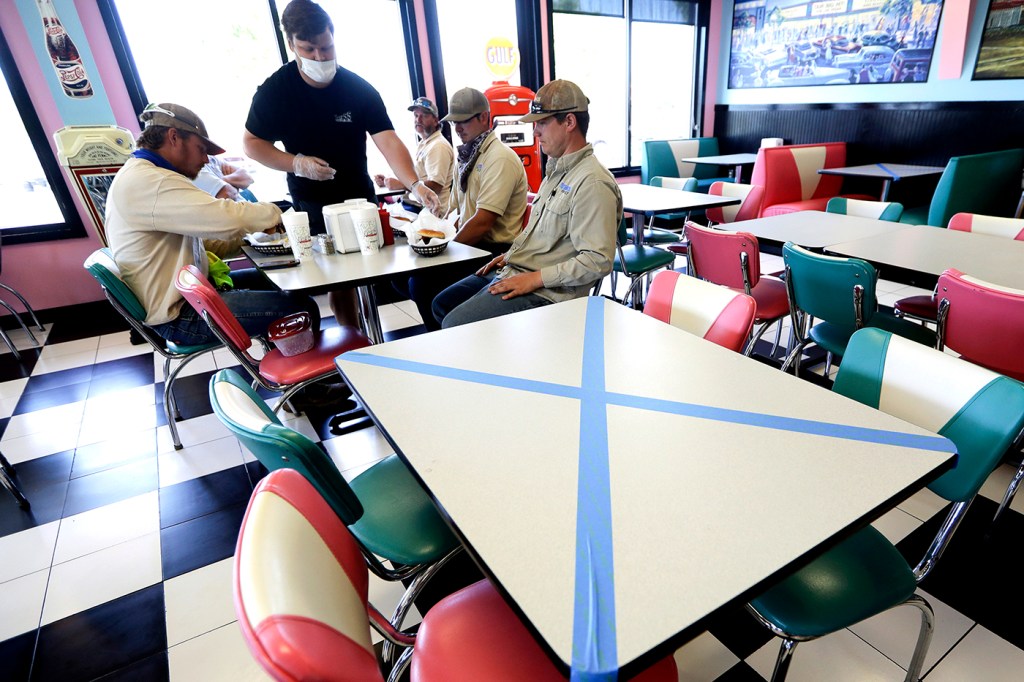
A majority of people in the U.S. want to continue physical distancing measures, even as the federal government and some state governors are pushing to reopen the economy, according to a new national survey led by researchers from Northeastern, Harvard, and Rutgers.
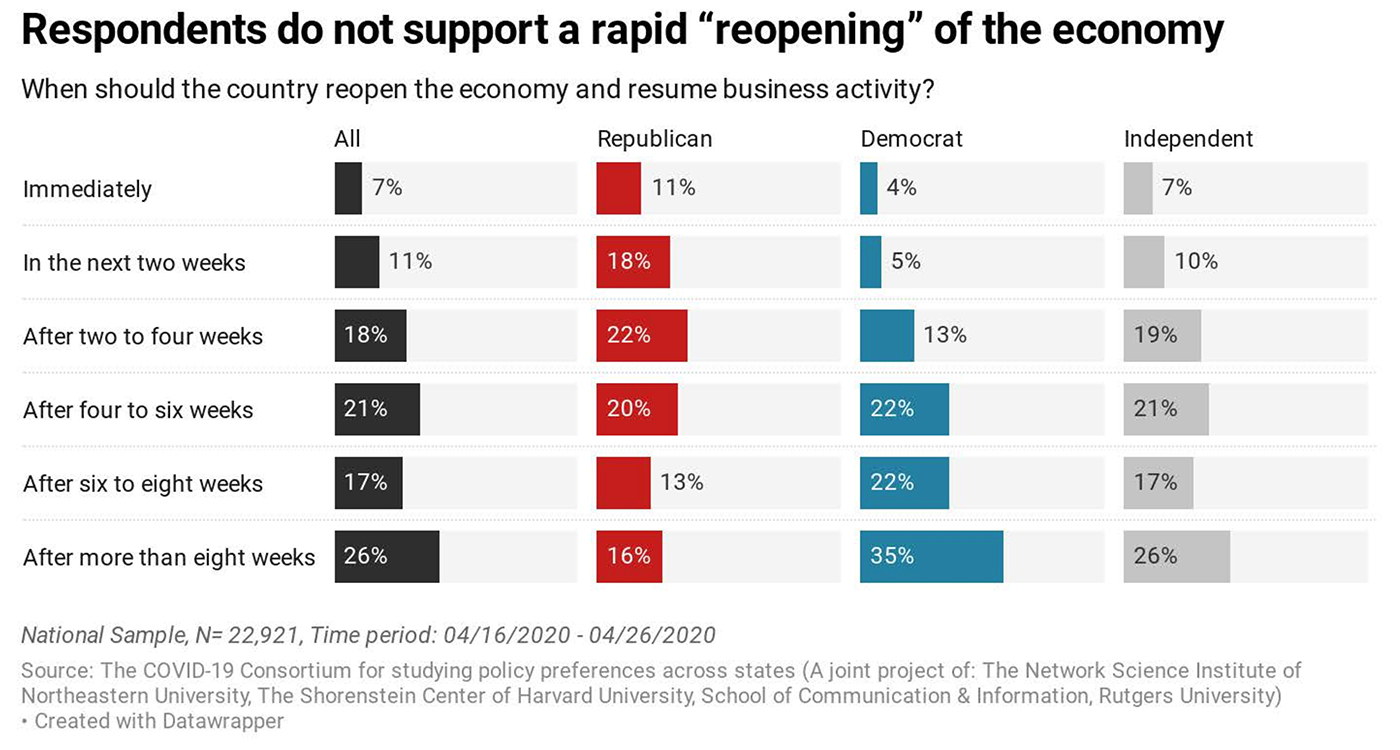
The survey, published Thursday, also reveals that more people trust scientists and scientific institutions to handle the COVID-19 pandemic than trust federal authorities or news media; and, as state governors take the lead on managing the crisis, they have become more popular among their constituents than President Donald J. Trump, who has handed much of the individual management over to the states.
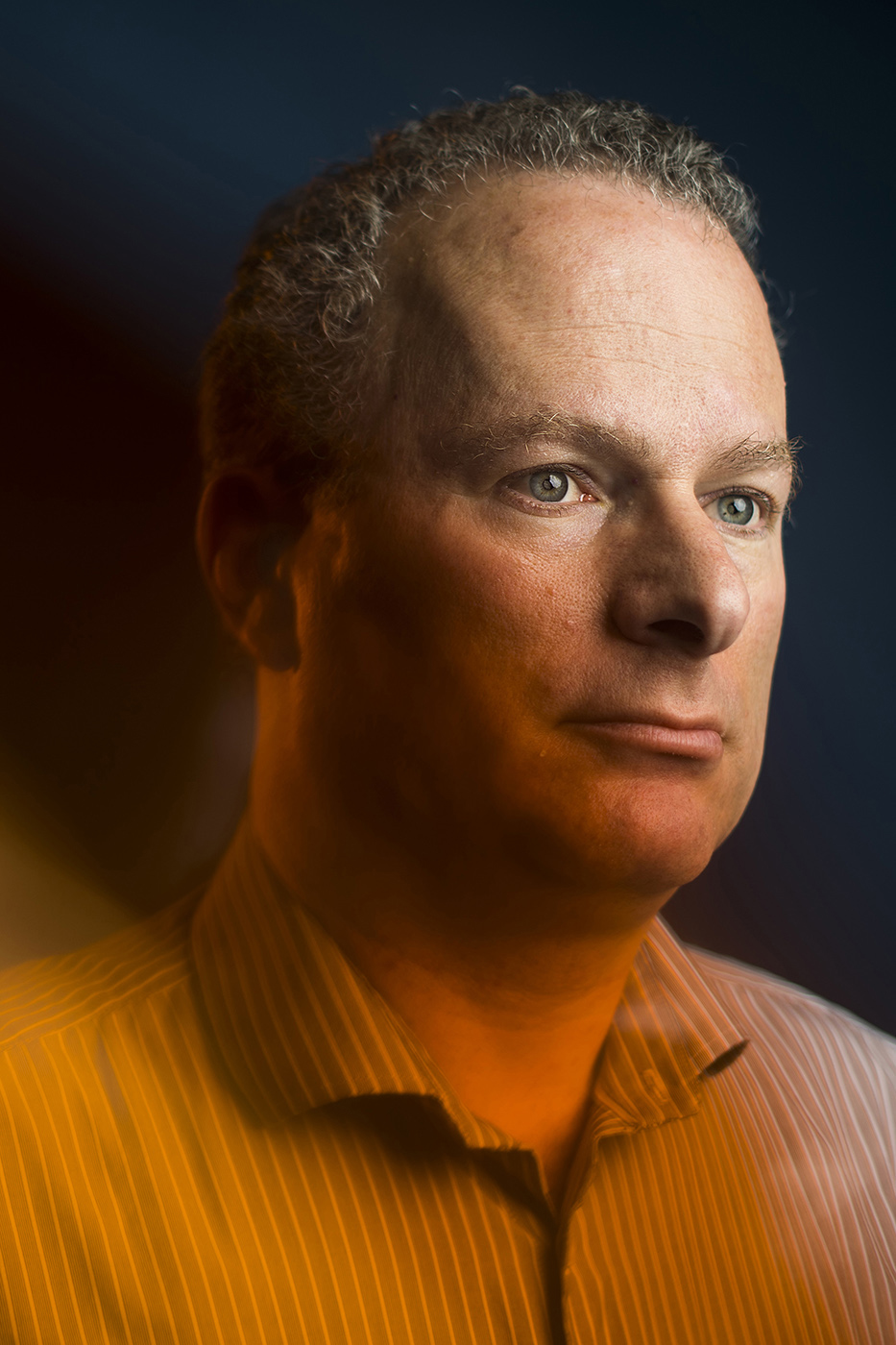
David Lazer, University Distinguished Professor of political science and computer and information sciences, with joint appointments in the College of Social Sciences and Humanities and the Khoury College of Computer Sciences at Northeastern. Photo by Adam Glanzman/Northeastern University
“People are highly supportive of the social distancing measures—they’re not ready to reopen the economy yet,” said David Lazer, University Distinguished Professor of political science and computer and information sciences at Northeastern. “And this is pretty much a bipartisan consensus.”
The researchers surveyed almost 23,000 individuals across all 50 states and the District of Columbia between April 17 and April 26. The answers they received revealed that the attitudes of Americans, divided on so many political and social issues facing the country, have united during this unprecedented crisis.
“This study is an attempt to help the public, health experts, and policymakers better understand how people across the country are thinking about, living with, and responding to the COVID-19 pandemic,” said Matthew Baum, Marvin Kalb Professor of Global Communications at the Harvard Kennedy School. “Our hope is that doing so will contribute to more effective communication with the public and ultimately more effective public policy decision making.”
Despite the financial hardships facing people across the country, 93 percent of Americans do not think the economy should reopen immediately—even in states that are currently moving in that direction.
“The public is firmly opposed,” Lazer said. “It seems to be that they’re listening to the experts, or they’re not listening to their political leaders.”
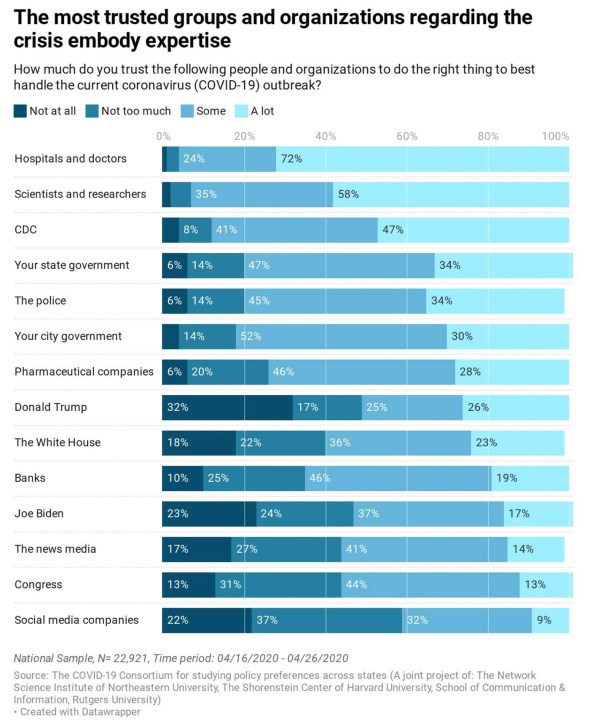
Ninety six percent of respondents reported “some” or “a lot” of trust in hospitals and doctors to do the right thing to best handle the COVID-19 outbreak. Ninety three percent said the same about scientists and researchers, and 88 percent about the Centers for Disease Control and Prevention.
“In a time when expertise seemed undervalued, Americans in our survey report extremely high levels of trust in experts,” said Katherine Ognyanova, assistant professor of communication at the School of Communication and Information at Rutgers University–New Brunswick. “Republicans and Democrats in the data differ in how much they trust political and media institutions. It is encouraging, therefore, that trust in medical professionals, scientists, and the CDC is high across party lines.”
Political actors were ranked lower, although those surveyed had significantly more trust in their state government, with 81 percent responding “some” or “a lot”, than in The White House (59 percent) or Congress (57 percent). Trust in Trump to handle the outbreak was split almost perfectly down the middle, with 51 percent of respondents saying they had “some” or a “a lot” of trust in the president, and 49 percent answering “none” or “not too much”.
“Trump especially is such a polarizing figure,” Lazer said. “But it is notable that his approval on the coronavirus is below that of every governor in every state.”
The survey (shown above) did reveal partisan divisions in regards to how long states should wait before trying to resume business as usual. Republicans tend to support reopening the economy somewhat sooner than Democrats: Eighteen percent of Republicans said in the next two weeks, 22 percent said after two to four weeks, 20 percent said after four to six weeks, 13 percent said six to eight weeks, and 16 percent said more than eight weeks. Only 5 percent of Democrats thought the country should reopen the economy in the next two weeks, 13 percent said two to four weeks, 22 percent said four to six weeks, another 22 percent said six to eight weeks, and 35 percent said more than eight weeks.
There are several factors that could be affecting that response, Lazer said.
“One is that people are receiving different messages,” Lazer said. “If you watch Fox News, you’re getting a very different picture of the impact of the pandemic and how bad it will be than if you’re reading The New York Times.”
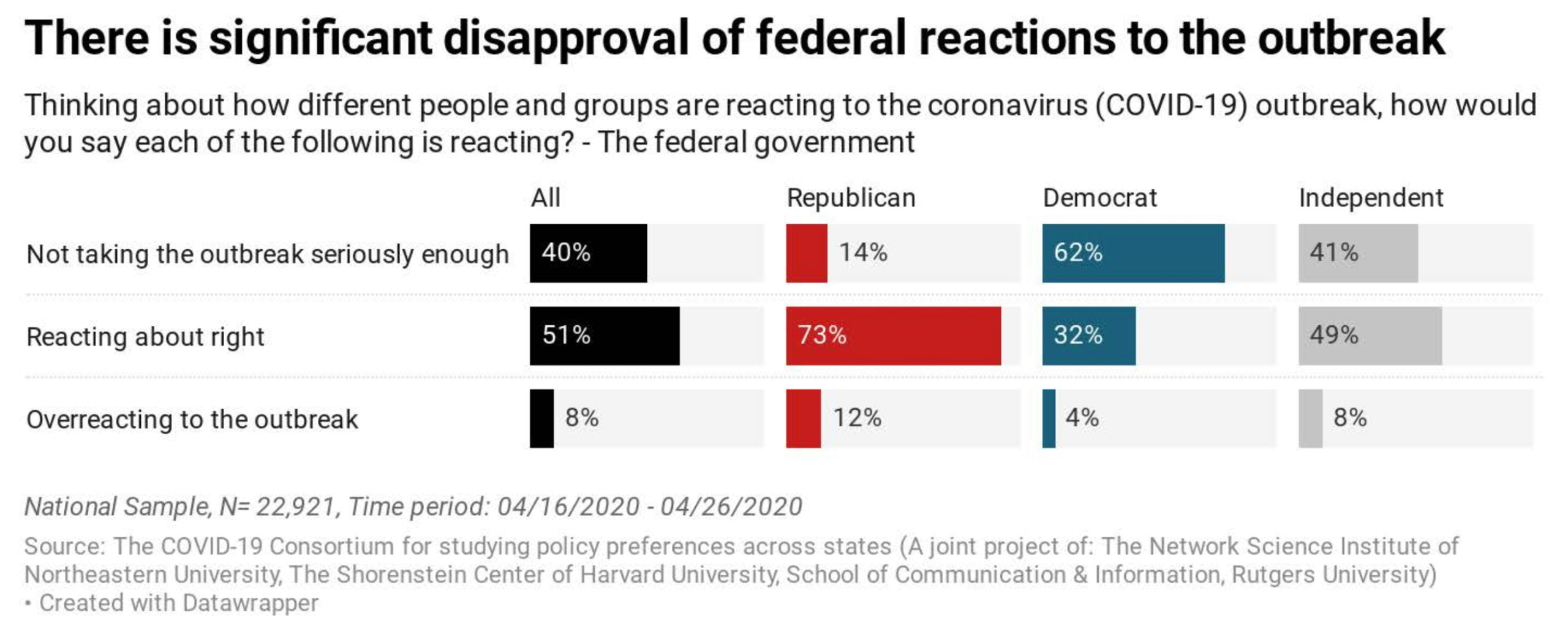
But media choices are not the only factor: The virus has not hit every part of the country with the same timing or severity. So far, areas in and around cities have been hit the hardest—there have been more than 12,000 confirmed deaths from the virus in New York City, which is roughly 20 percent of the deaths in the country.
“If you’re living in New York or Boston, your experience of the coronavirus is very different than if you’re living in rural Wisconsin,” Lazer said. “And that does correlate with partisanship.”
If urban areas, which tend to lean Democratic, are experiencing more severe outbreaks, it makes sense that they would feel the need to hold off longer on reopening the economy, Lazer said. But these attitudes may shift as the virus continues to spread.
“This is a very dynamic situation,” Lazer said. “We’re going to need a lot of snapshots of what’s happening and how attitudes and behaviors are changing.”
The researchers intend to repeat the survey every other week, to capture these changes as they happen.
For media inquiries, please contact Shannon Nargi at s.nargi@northeastern.edu or 617-373-5718.




